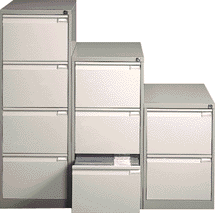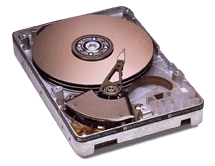| Database systems | |||||
|
A database is a large and continuously updated collection of stored data structured to allow the various applications of a system to access the data quickly. A database may be used by a number of different applications.
Example : The school has a database of pupils' details, exam marks, reports etc... The same database is used by programs which - process merits - prepare end-of-term reports - process examination marks etc. It may happen within a large company that different departments may be keeping the same information in separate files, on separate computer systems. The information may be set up differently (ie different field names, sizes etc); the computers used may be different and even incompatible! If any data changes, each department will need to update its own files - this may be time-consuming. A database provides a method of organising data more efficiently. The data is held in a central database and each department in the company accesses the same information. A D.B.M.S. (DataBase Management System) is a complex software system which is responsible for the following functions : - Data storage, retrieval and update. The DBMS must allow the users to
- Maintaining the integrity of the database. Making sure that the data is validated and that the same data is not stored more than once. - Managing facilities for sharing a database. eg The DBMS has to ensure that problems do not arise when two users access the same record at the same time and try to change it! Usually done using record-locking. - Backup and recovery The DBMS should provide the ability to recover the database in the event of system failure. - Security The DBMS must handle password allocation and checking, and which data that a user is allowed to access. Examples of a DBMS : Microsoft Access, MySQL, Oracle, Microsoft SQL Server
|
|||||



